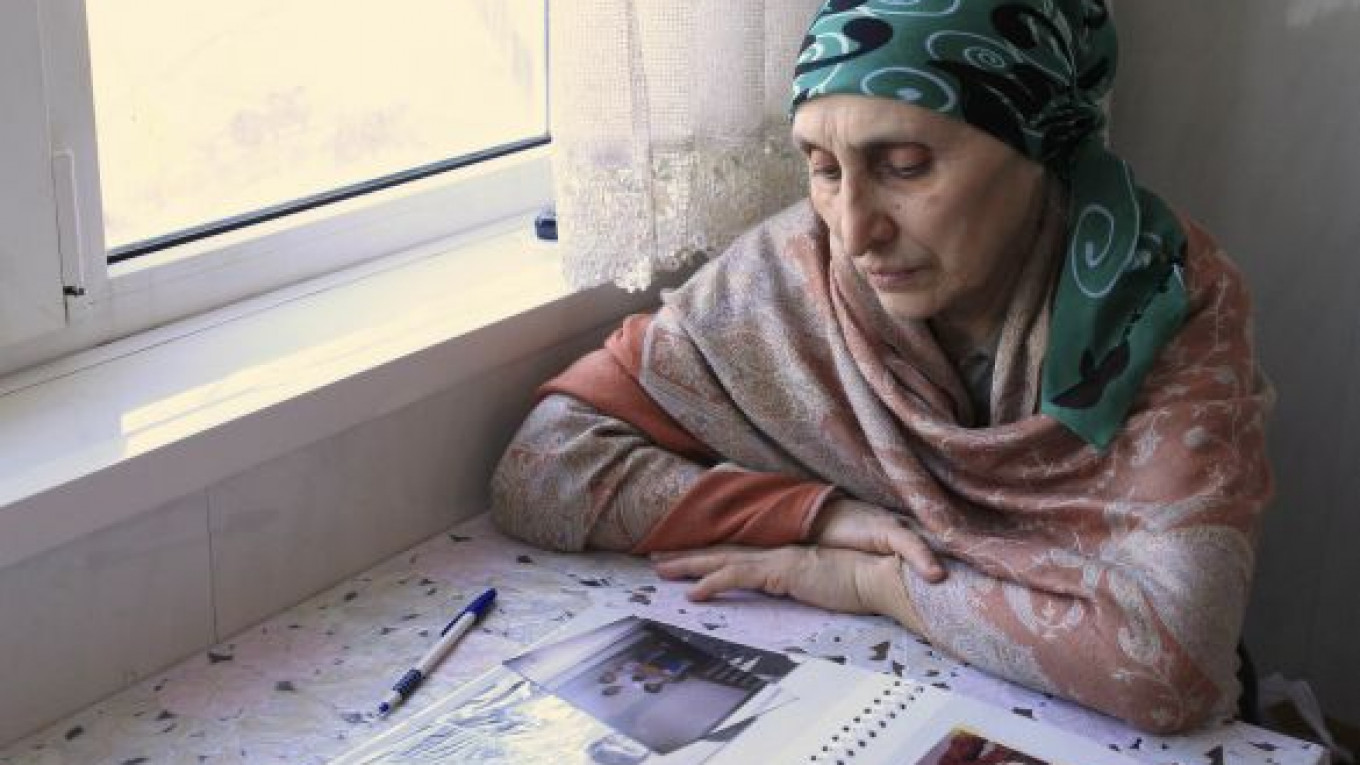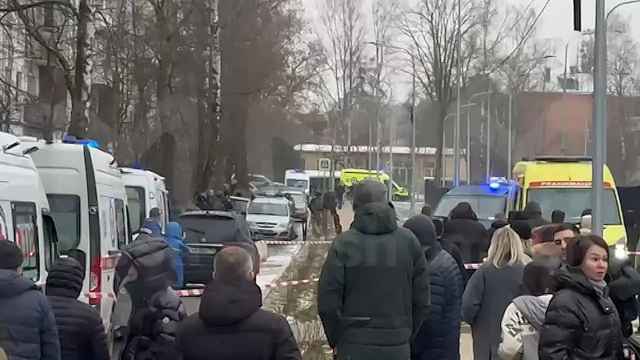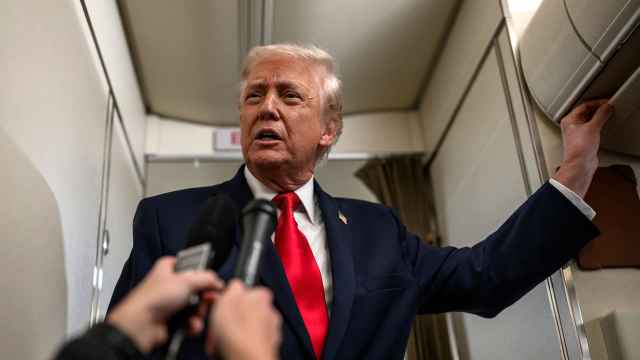MAKHACHKALA — The elder suspect in the Boston bombings regularly attended a mosque and spent time learning to read the Quran, but he struggled to fit in during a trip to his ancestral homeland in southern Russia last year, his aunt said.
Tamerlan Tsarnaev seemed more American than Chechen and "did not fit into the Muslim life" in the Caucasus, Patimat Suleimanova said in an interview. She said that when Tsarnaev arrived in January 2012, he wore a winter hat with a little pompom, something no local man would wear, and "we made him take it off."
Tsarnaev and his younger brother are accused of setting off the two bombs at the Boston Marathon on April 15 that killed three people and wounded more than 200. Tsarnaev, 26, was killed in a gun battle with police. His 19-year-old brother, Dzhokhar Tsarnaev, was later captured alive, but badly wounded.
On Monday, two U.S. officials said preliminary evidence from an interrogation suggests the brothers were motivated by religion but were apparently not tied to any Islamic terrorist groups.
U.S. investigators are focusing on the six months Tamerlan Tsarnaev spent last year in two predominantly Muslim Russian republics, Dagestan and Chechnya, to see if he was radicalized by the region's militants, who have waged a low-level insurgency against security forces for years.
After returning from Russia, Tsarnaev made his presence known at a Boston-area mosque, where his outbursts interrupted two sermons that encouraged Muslims to celebrate American institutions such as the July 4 Independence Day and figures like Martin Luther King Jr., according to the Islamic Society of Boston Cultural Center. During one incident congregants shouted at him, telling him to leave, the center said in a statement released Monday.
The Tsarnaev family moved to the United States a decade ago, but the suspects' parents are now in Russia. Their father said he hopes to go to the United States this week to seek "justice and the truth."
Suleimanova, who wore a pea-green headscarf, said her nephew prayed regularly and studied the Muslim holy book. "He needed this. This was a necessity for him," she said.
Every day, using Skype, he spoke to his American-born wife, who had recently converted to Islam, and at times she instructed him on how to observe religious practices correctly when he lapsed, Suleimanova said Sunday from her home in Makhachkala, the capital of Dagestan. She said her nephew was considering bringing his wife to Dagestan.
His parents insist he spent much of his time visiting relatives in his mother's and father's extended families in Dagestan and Chechnya, but details of his whereabouts are vague and contradictory. His father says Tsarnaev stayed with him in Makhachkala, regularly sleeping late.
His aunt, however, said neither of Tsarnaev's parents was in Russia when he arrived. One reason his father came last year, Suleimanova said, was to make sure his elder son returned to the United States. It was not clear when his father or mother arrived. His mother was arrested in the U.S. in June on charges of shoplifting.
Tsarnaev's father explained his son's trip by saying he needed to get a new Russian passport. But an official with the federal migration service in Dagestan said Monday that Tsarnaev had applied for a new passport in July, but never picked it up, Interfax reported. Tsarnaev returned to the U.S. on July 17.
His mother, Zubeidat Tsarnaeva, said in an interview that her son greatly enjoyed his time with her relatives, but never traveled to her native village in a mountainous region of Dagestan, which is a hotbed of an ultraconservative strain of Islam known as Wahabbism. Wahabbism was introduced to the Caucasus in the 1990s by preachers and teachers from Saudi Arabia.
The mother said her relatives now all live in Makhachkala and the town of Kaspiisk. She refused to say which mosque her son frequented, but Tsarnaev's parents and aunt firmly denied that he met with militants or fell under the sway of religious extremists.
"He used to say, 'I want to go somewhere in the mountains, to be all by myself, to escape from everyday life, to be alone,'" Suleimanova said.
Related articles:
A Message from The Moscow Times:
Dear readers,
We are facing unprecedented challenges. Russia's Prosecutor General's Office has designated The Moscow Times as an "undesirable" organization, criminalizing our work and putting our staff at risk of prosecution. This follows our earlier unjust labeling as a "foreign agent."
These actions are direct attempts to silence independent journalism in Russia. The authorities claim our work "discredits the decisions of the Russian leadership." We see things differently: we strive to provide accurate, unbiased reporting on Russia.
We, the journalists of The Moscow Times, refuse to be silenced. But to continue our work, we need your help.
Your support, no matter how small, makes a world of difference. If you can, please support us monthly starting from just $2. It's quick to set up, and every contribution makes a significant impact.
By supporting The Moscow Times, you're defending open, independent journalism in the face of repression. Thank you for standing with us.
Remind me later.






